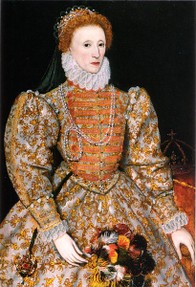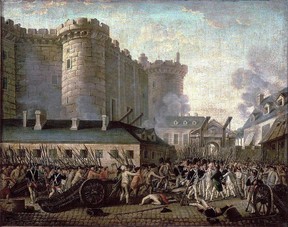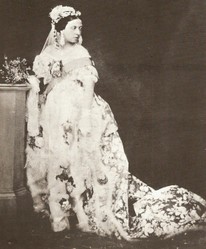The Gregorian calendar, also referred to as the Christian and Western calendar, is now used all over the world but before October 15, 1582, nobody used it. Before then, they used the Julian Calendar, which was named after the Roman Emperor, Julius Caesar. There is a great history behind this calendar, from losing out on 10 days and Elizabeth I even refusing to allow England to follow it. In fact, it was 1752 that Great Britain finally started following the Gregorian calendar.

The Start of the Gregorian Calendar: The Missing 10 Days
Think the calendar you know has been around forever? Think again! In 1582, the world started switching to the Gregorian calendar but it meant 10 days went missing!
The Difference Between the Gregorian and Julian Calendars
Are there really that many differences between the two calendars? Did it really need to be changed?
 Before 1582, almost the whole world followed the Julian calendar. It was great when it was first created in 45BC. Only 11.5 minutes off the solar calendar, the 11 months of 30/31 days (except February, which was as it is today). The months weren’t exactly as they are now.
Before 1582, almost the whole world followed the Julian calendar. It was great when it was first created in 45BC. Only 11.5 minutes off the solar calendar, the 11 months of 30/31 days (except February, which was as it is today). The months weren’t exactly as they are now.
You will be forgiven for second-guessing the months September, October, November and December. After all, Sept means seven, Oct is eight, Nov is nine and Dec is 10—why are they months 9-12 and not 7-10? In the original Roman calendar, they were months 7-10, hence their names. In fact July and August were months five and six and were originally known as Quintus and Sextus and were changed in memory of two great Caesars: Julius and Augustus.
The downside of the Julian calendar is that by 1582 it was 10 days out of line with the solar calendar. Important Christian dates were moving earlier in the year. Easter was traditionally celebrated on the first day of Spring but it started moving into early March and late February. The pope at the time, Pope Gregory XIII had to do something about it.
He issued a papal bull in February 1582 ordering the use of the Gregorian calendar around Europe. It would replace the Julian calendar. It all seems so simple.
The Loss of 10 Days and the Delay of England
England chose to ignore the papal bull at first. It took almost 200 years for them to admit that it was wrong and then needed to start following the new calendar.
 By 1582, Elizabeth had been excommunicated by Pope Pius V and refused to follow orders from Rome. She was the head of the church and would not be told what to do by the Roman Catholic pope. England wasn’t the only country to ignore this papal bull and continued to follow the Julian calendar.
By 1582, Elizabeth had been excommunicated by Pope Pius V and refused to follow orders from Rome. She was the head of the church and would not be told what to do by the Roman Catholic pope. England wasn’t the only country to ignore this papal bull and continued to follow the Julian calendar.
It took almost 200 years for England to finally fall in line. This was during the reign of King George II, who’s parliament issued the British Calendar Act in 1751. The whole of Great Britain would go to sleep on September 2, 1752 and wake up the next day but it would be September 14!
In 1752, England lost 11 days but in 1582 it would have only been 10. Those countries that made the change to the Gregorian calendar went to sleep on October 4 and woke up to find it was October 15. It must have been really disorientating for some people. The clocks going back/forward twice a year is disorientating enough!
The benefit of adding the extra month was that the calendar was out with the solar calendar by just 26 seconds. That would only equate to a day every 3,323 days! Much better than the 11.5 minutes.
The Gregorian Calendar Isn’t Perfect
Do you know when Thanksgiving will fall next year? Most Americans can't hazard a guess to that!
There are some downsides to the Gregorian calendar—more than the months September-December not really making much sense! The main one is that the year cannot be equally split into quarters and halves. There will always be more days in some parts of the year. It also means that the months start on different days—and that changes every year.
It doesn’t seem like much of a weakness now. In fact, if you know the day a date fell on one year, you can usually work out the day of the week it will fall on the next day. Apart from leap years, it is always the next day on.
However, the changing days has also led to holidays falling on different days of the week. Those that have to fall on certain days, like the Bank Holiday Mondays in the UK or Thanksgiving in America, will see the specific dates change. It can be difficult to predict the dates the next year.
Have Some Fun with Your 2014 Calendars
 |  |  |
| 2026 National Park Foundation Wall Ca... Only $11.97 | 2026 Calendar, 21-Month Wall Calendar... Only $7.99 | Urban Intellectuals 2026 Black Histor... Only $24.0 |
Other Changes to the Calendar
During the French Revolution, another change to the calendar was attempted. It's a shame this one didn't stick as it seems quite simple.
 There have been other attempts at changing the calendar. During the French Revolution, the people attempted to switch to what will now always be known as the Revolutionary Convention Calendar. This finished when the revolution ended but it was a simple calendar to understand.
There have been other attempts at changing the calendar. During the French Revolution, the people attempted to switch to what will now always be known as the Revolutionary Convention Calendar. This finished when the revolution ended but it was a simple calendar to understand.
In short, there were 10 days a week, with the rest day on the last day, and 12 months of 30 days a year. To stay in line with the solar calendar, it meant that there were five extra days. These would be known as feast days. What about leap years? These were added to the end of the year.
The calendar has been through many changes and will probably go through changes in the future. When you look at the whole world, you will see that there are many different calendars followed, such as the Mayan and Chinese calendars. Most people go about their day not even thinking about the changes. It does make dating history difficult. In fact, the dates noted can actually be out by a whole year!
I bet you wish I hadn’t written this now!
You might also like
Thinking about NalediThe new discoveries in the Rising Star cave in South Africa arouse questions ...
The History of the Wedding Dresses: From Beautiful Gowns to Wh...Wedding dresses have changed a lot over the years. The colour is the most not...






 Alternate History: What If Mary I Had a Child?on 01/26/2015
Alternate History: What If Mary I Had a Child?on 01/26/2015
 Francis II of France Dies: Mary, Queen of Scots Returns Homeon 12/05/2014
Francis II of France Dies: Mary, Queen of Scots Returns Homeon 12/05/2014
 Does Writedge Pay? Payment Proofon 12/03/2014
Does Writedge Pay? Payment Proofon 12/03/2014
 Alternate History: What If Lady Jane Grey Was Not Deposed?on 11/11/2014
Alternate History: What If Lady Jane Grey Was Not Deposed?on 11/11/2014


Comments
That's really interesting. You learn something new every day. Thanks for sharing that frankbeswick.
On Countryfile, a British television programme, this Sunday, 26 January 2014, there was an article about a remote Welsh village which still celebrates new year on the 13th January, as they still stick to the old calendar for the purposes of the festival. The village is in the Prescelli Hills in Pembrokeshire, South Wales. The original reason would have been hostility to Catholicism, as it was the pope who originated the change and they, like most of Wales, were ardent protestants.
Calendars are just so confusing! Trying to work out when months really started compared to the months that we have now is really difficult at times. Then there are different calendars from around the same period! The French Revolutionary Calendar definitely seems like the most logical and easiest to understand.
I love the French Revolutionary Calendar. It seems so logical and simple.
wow, this was interesting, but I had to read it a few times to get my head around the dates, and the french revolutionary calendar? well, that would have been a nightmare.
I'm confused now. I thought the Roman calendar started the year in March, hence 7 for September, etc. I do know the year did start in spring in ancient times. Maybe it's only carried on in the names of the months of the Roman calendar. I wonder when the year got to start in January, though.
Yes, calendars are fascinating and confusing! The Japanese have a calendar that counts years based on the Emperor. It makes it really difficult to know how old someone is if they were born in the era of one emperor and it's now a different emperor - so you could be born in year 64 and it's now only 24!
I heard from my old history teacher that some people argued that they might have died on one of the missing days and had now been cheated of their eternal reward. I suspect that their less virtuous brethren breathed a premature sigh of relief at the thought of their own prospective eternal destiny.
These 'missing' days are a nightmare in genealogy too. You keep finding mentions in the parish records, which are full of suspicion about them.
I shared this via Pinterest to my EDUCATION board and hashtagged it "history".